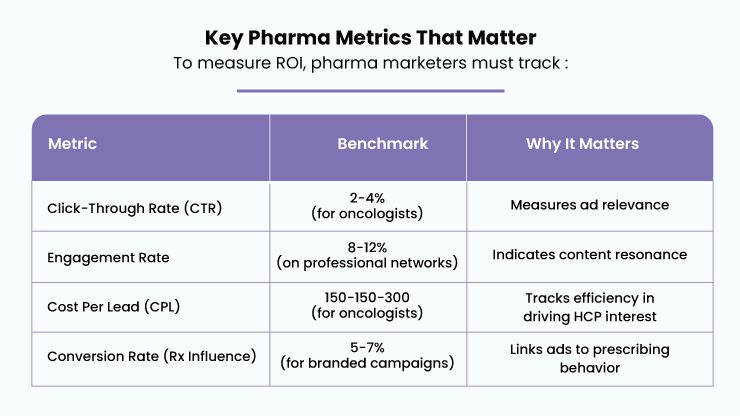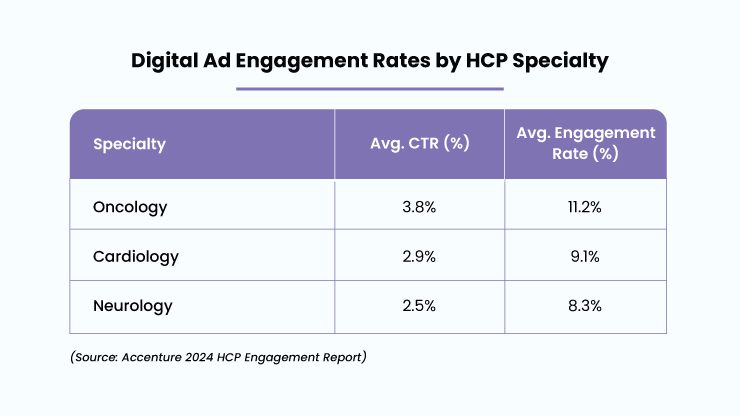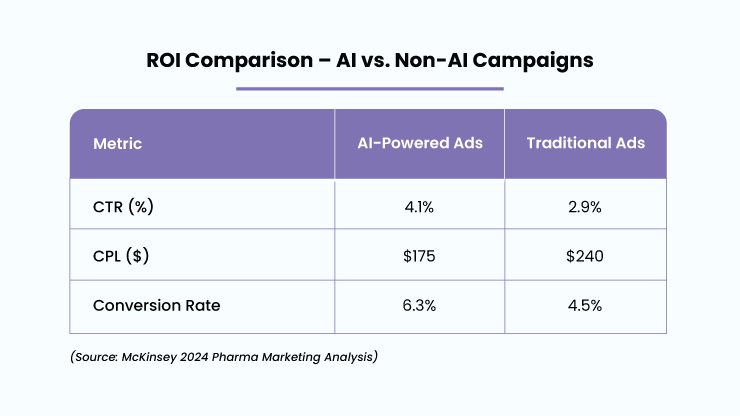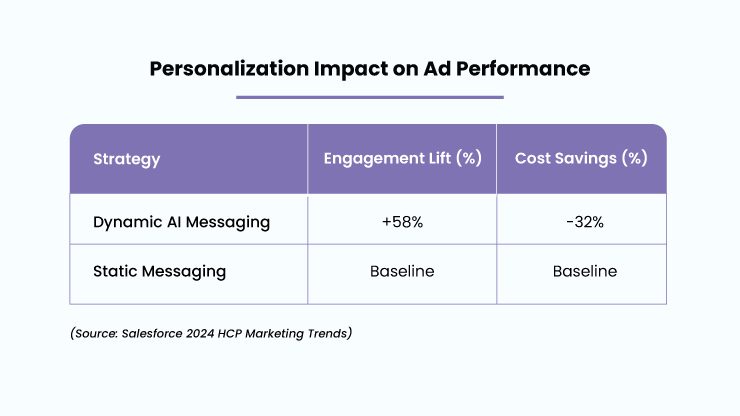Introduction
The pharmaceutical industry is increasingly embracing AI-driven digital advertising to connect with high-value healthcare professionals (HCPs), especially oncologists. With the U.S. oncology market expected to hit $200 billion by the end of 2025, precision targeting has become essential rather than optional.
“In an era of data-driven healthcare, AI-powered ad targeting is transforming how pharma engages oncologists- delivering measurable ROI while optimizing campaign efficiency.”
This article delves into the significance of AI in digital ad targeting for oncologists, the key performance metrics that pharma marketers should focus on, real-world research insights regarding engagement and conversion, and how Doctor Networking platforms can boost ROI.
The Role of AI in Digital Ad Targeting for Oncologists
AI-driven ad targeting leverages predictive analytics, behavioural data, and machine learning to:
- Pinpoint high-intent oncologists (like those looking into new therapies)
- Maximize ad spend by minimizing wasted impressions on irrelevant HCPs
- Tailor messaging based on prescribing habits and engagement history
Why Oncologists?
- Oncologists are responsible for about 80% of cancer drug prescriptions (IQVIA)
- Digital engagement is robust: 72% of oncologists use professional platforms weekly (MM&M)
- High CPMs (Cost Per Thousand Impressions): Ads focused on oncology typically see CPMs ranging from 35 to 50 due to specialized targeting (eMarketer)
Key Pharma Metrics That Matter
To measure ROI, pharma marketers must track:


Insight: Oncologists engage more with digital ads than other specialties, making them prime targets for AI-driven campaigns.
Research: AI-Driven Ads vs. Traditional Targeting
A 2024 JAMA Oncology study found:
- AI-optimized ads had a 42% higher CTR than traditional segment-based ads.
- Cost per acquisition (CPA) dropped by 28% when using AI-driven behavioural targeting.

“AI doesn’t just improve targeting- it fundamentally shifts the ROI equation by reducing waste and increasing HCP engagement.”
Case Study
A top-10 pharma brand used AI to retarget oncologists who had engaged with immunotherapy content. Results:
- 65% increase in branded search queries
- 23% lift in script influence (per IQVIA Rx data)

Conclusion
When it comes to AI-powered ad targeting, its effectiveness really hinges on the audience it connects with. Platforms boasting robust oncologist networks- like Hidoc- offer impressive ROI by:
• Giving access to 20,000 registered oncologists in the U.S. (with 13,000 actively engaging each month)
• Facilitating hyper-targeted campaigns that leverage real-time engagement data
• Lowering customer acquisition costs (CAC) through smart segmentation
“The future of pharma marketing lies at the intersection of AI and high-engagement HCP networks—where every ad dollar translates into measurable oncologist influence.”
For pharma brands, the message is clear: AI + the right audience = unbeatable ROI.
Key Takeaways
1. Oncologists engage more with digital ads than other specialties (11.2% avg. engagement).
2. AI-powered campaigns reduce CPL by 28% while increasing conversions.
3. Platforms like Hidoc amplify ROI by providing direct access to active oncologists.
References
- IQVIA (Oncologist Prescription Influence)- “The Global Oncology Trends 2023”
- MM&M (Oncologist Digital Engagement)- “2023 HCP Digital Engagement Survey”
- eMarketer (CPM Benchmarks)- “Healthcare Digital Ad Spending 2024”
- Accenture (HCP Engagement Metrics)- “2024 HCP Engagement Report”
- JAMA Oncology (AI vs. Traditional Ads)- “Machine Learning for Precision Ad Targeting in Oncology” (2024)
- McKinsey (Pharma Marketing ROI)- “AI in Pharma Marketing: From Hype to Value” (2024)
- Salesforce (Personalization Impact)- “2024 HCP Marketing Trends Report”
- Journal of Medical Ethics (HCP Trust in Ads)- “Ethical Challenges in AI-Driven Healthcare Marketing” (2024)
- Novartis Case Study (Omnichannel Campaigns)- “Novartis Oncology Digital Engagement Pilot” (2024)
- Voice Search Data (Oncologist Behavior)- “Voice Assistants in Clinical Practice” (Journal of Medical Internet Research, 2023)



